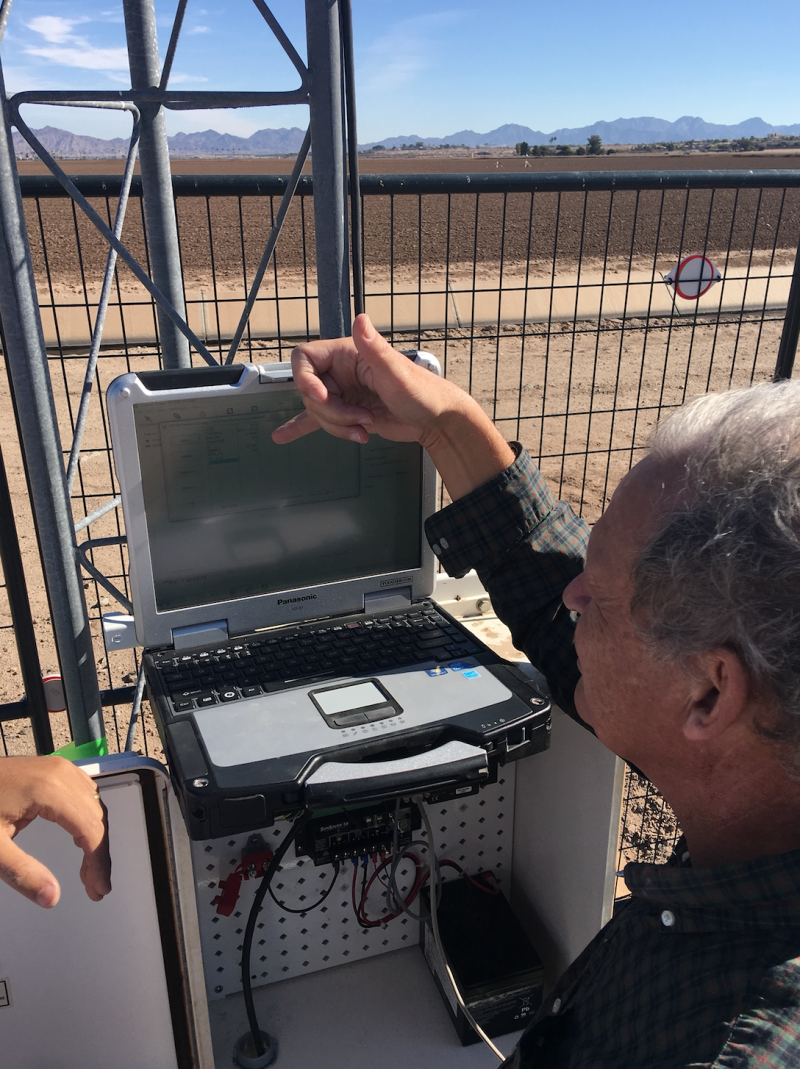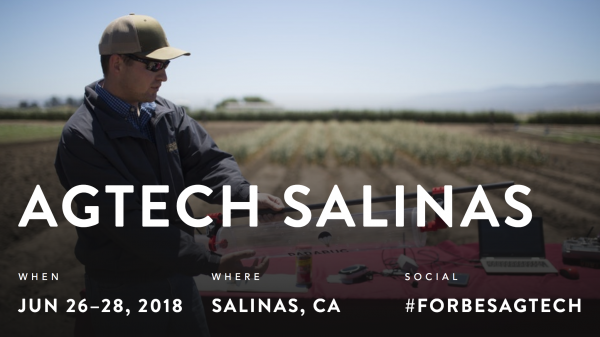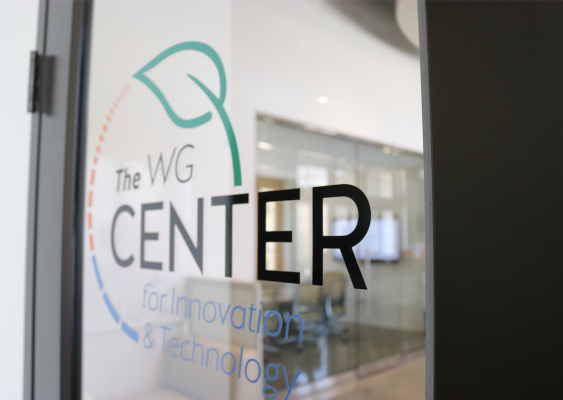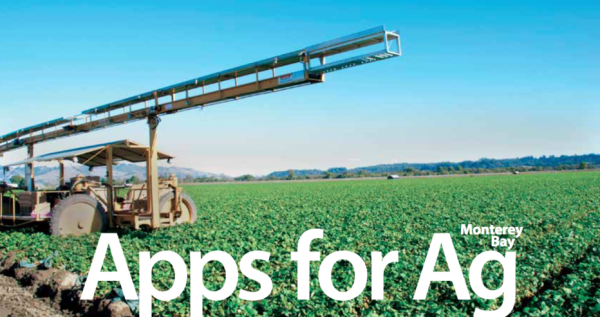Companies
Central Coast growers support public-private partnership to solve real time problems in agriculture

(Contributed by Yuma Center of Excellence for Desert Agriculture — YCEDA)
August 28, 2018 – Yuma, Arizona
(Photo above: Tech in agriculture – Dr. Andrew French, USDA researcher at the Arid Land Agricultural Research Center, Maricopa, Ariz., studies field data gathered with a large aperture scintillometer which measures heat influx over large distances. Credit: YCEDA)
YCEDA: Tech helps farmers produce sustainable, safer food with less water
Technology has certainly revolutionized the communications process through computers, Smartphones, and other state-of-the-art devices. Meanwhile, tech and farmer ingenuity have helped the U.S. agricultural industry become a nearly $1 trillion sector (USDA).
Agriculture’s gains are also reflected in efficiency terms. In the early 1980s, one U.S. farmer produced enough food and fiber to feed and clothe about 28 people. Today, thanks largely to technology, one farmer feeds and clothes 165 people – a nearly seven-fold increase.
Across the U.S., several hundred different crops are grown by farmers from coast to coast. Among the many crops grown in California and Arizona include vegetables. This industry taps technology to tackle vegetable-growing challenges.
One group advancing AgTech is the Yuma Center of Excellence for Desert Agriculture (YCEDA) – desertagsolutions.org – based at Yuma, Ariz.
The Center is an innovative public-private partnership between the University of Arizona (UofA) and agricultural stakeholders from California and Arizona. The organization brings together scientific research and industry to develop solutions to bring value to YCEDA stakeholders by addressing ‘on-the-ground” needs of desert farming.
“YCEDA is an excellent example of an effective and efficient public-private partnership that is helping solve real time problems in agriculture,” says John D’Arrigo, President, CEO, and Chairman of the Board of D’Arrigo Brothers Co. of California; a YCEDA stakeholder based at Salinas. He says, “YCEDA is a very worthwhile expenditure of my research dollars.”
Nearly two dozen stakeholders financially support YCEDA through tax deductible donations. These dollars help the Center build researcher alliances, initiate projects, and secure grant funding to maximize the organization’s work.
Vegetable demand
Why is finding answers quickly so important? There’s a huge consumer demand for vegetables each year and it needs to be filled safely and sustainably. About 90 percent of the nation’s supply of leafy greens are grown in California (summer) and Arizona (winter).
YCEDA Executive Director Paul Brierley shares this quote from UofA Economist George Frisvold, “California’s Salinas Valley and the greater Yuma area in Arizona and Southern California are to agriculture what the Silicon Valley is to computers and what Napa is to wine.”
Irrigation management
Pressing issues facing today’s vegetable farmers include maximizing crop yields and quality while improving water efficiency and soil health.
One large YCEDA research project aims to improve irrigation and soil salinity management in vegetables. Brierley says that’s important since too much salinity from water and salts already in the soil can lead to stunted plants and thus reduced yields, and other problems.
Researchers are tapping technology to determine the best amount of water to grow vegetables, plus how much water is needed to push soil salts away from the plant’s root zone.
“In addition to measuring plant evapotranspiration, we are gaining real time plant growth data from satellites,” Brierley says. “We will fly drones with special sensors to enhance data captured by satellite.”
Preventing E. coli
Front and center on YCEDA’s radar screen is the safety of leafy greens for consumers. Food safety is the No. 1 priority for leafy green vegetable farmers who work tirelessly daily to keep food safety threats, including the pathogen E. coli, out of farm fields.
Brierley says, “The Yuma Center is working to develop new E. coli technologies for the ‘tool box’ to improve (1) avoidance, (2) detection, (3) ‘kill step,’ and (4) trace back.”
Central Coast involvement
YCEDA is supported by proactive donors from California and Arizona. Those based on California’s Central Coast include Church Brothers Farms, D’Arrigo Brothers Co. of California, Duda Farm Fresh Foods, The Nunes Company-Foxy Vegetables, Ocean Mist Farms, Tanimura & Antle, and Taylor Farms.
Arizona supporters include Amigo Farms, Barkley Ag Enterprises LLC, Farm Credit Services Southwest, Four Little Devils Farms, Gila Valley Farms, Gowan Company, The Growers Company, JV Smith Companies, Keithly-Williams Seeds, Martori Farms, Mellon Farms, Pasquinelli Produce Co., Smith Farms Company of Yuma, SMT Farms & TFT Farms, and T&P Farms.
For more information, contact YCEDA’s Paul Brierley at PaulBrierley@email.arizona.edu or (928) 782-5873.
###
If you wish to republish this article, please follow our Terms of Use.
###
Tagged agtech








